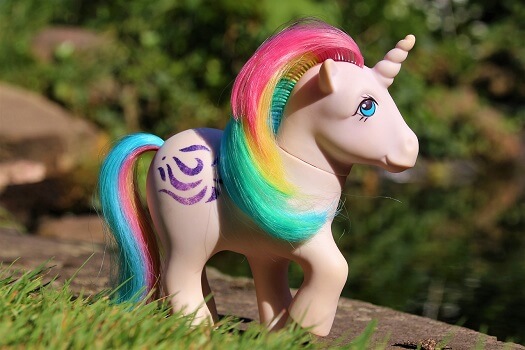Unicorn Fart Dust (UFD) hit a $240 million market cap within just 48 hours of its launch.
UFD’s inspiration stemmed from the critique of digital assets for their intrinsic value.
The creator of UFD has pledged to share 20% of his profits with his community.
Unicorn Fart Dust (UFD), a new Solana-based meme coin, has taken the crypto world by storm, reaching a $240 million market cap within just 48 hours of its launch, although it is yet to list on major cryptocurrency exchanges.
The token hit a high of $0.26676 on MEXC before slightly pulling back to around $0.2 at press time.
Who created Unicorn Fart Dust (UFD)?
Created by YouTuber Ronald Branstetter, known for his commentary on gold and silver investments, the UFD token started as a satirical critique of the speculative nature of cryptocurrency. However, its meteoric rise has turned this playful experiment into a cultural phenomenon.
Branstetter’s inspiration for UFD stemmed from his critique of digital assets, which he once described as “unicorn fart dust”—a term he used to question their intrinsic value.
If you want to understand the lore behind $UFD better:
This video was posted by @BasementRon in January 10, 2023. He called Bitcoin Unicorn Fart Dust back then. This is because he is a gold and silver maxi.
Fast forward to December 17, 2024, he made a memecoin with the ticker… pic.twitter.com/qBmaaaICiv
— Tristan 💎✋ (@tristanplays16) December 19, 2024
However, despite his lack of experience in crypto development, Branstetter’s creation has quickly resonated with investors, achieving viral success through a mix of social media buzz and meme culture.
Coincidentally, the Unicorn Fart Dust (UFD) token was launched a few days after the “Unicorn Fart” finishing move was introduced in Call of Duty: Black Ops 6. Despite its humour, the finishing move has faced criticism for being over-the-top and potentially disrespectful.
Branstetter noted that he only owns 1.2% of it and isn’t expecting to get rich from it. During a live video stream, he updated that he had sold half of his holdings after the market cap hit $23 million and that he plans to give 20% of his profits to his community of over 45,000 subscribers.
Unicorn Fart Dust is now among the 20 largest Solana memecoins
The token’s journey began as a humorous jab at the market’s tendency to inflate the value of seemingly insignificant assets. Yet, UFD has rapidly climbed the ranks to become the second most traded on-chain asset, trailing only behind established players.
🚨 New: YouTuber @BasementRon, known for his gold and silver content, created the “Unicorn Fart Dust” ($UFD) token to mock crypto and prove a point that crypto is worthless. In 2 days, $UFD hit a $240M market cap, becoming the 2nd most traded on-chain asset in the last 24 hours. pic.twitter.com/aqPCXQDLUi
— SolanaFloor (@SolanaFloor) December 19, 2024
UFD has also secured its position among the top 20 largest Solana-based memecoin according to its market cap.
This unexpected surge highlights the unpredictable nature of the crypto market, where speculation and online trends can create massive ripples.
UFD’s rise underscores both the power of internet culture and the speculative nature of the cryptocurrency market. While some see it as a critique of frivolous investments, others view it as a testament to the decentralized potential of blockchain technology.
Whether it’s a fleeting trend or the start of something bigger, Unicorn Fart Dust has undeniably captured the imagination of the crypto world.
What is fueling the rise of the UFD token?
Social media platforms like Twitter and Reddit have played a pivotal role in UFD’s rise, with users sharing memes and jumping on the bandwagon for entertainment and speculative gains.
Branstetter’s honest and self-aware approach has also endeared him to his audience, with many praising his transparency.
“People are buying this thing, which just blows me away because it is nothing but unicorn fart dust,” Branstetter remarked during a live stream.
The post What is Unicorn Fart Dust (UFD)? It hit $240M market cap in just two days appeared first on CoinJournal.


